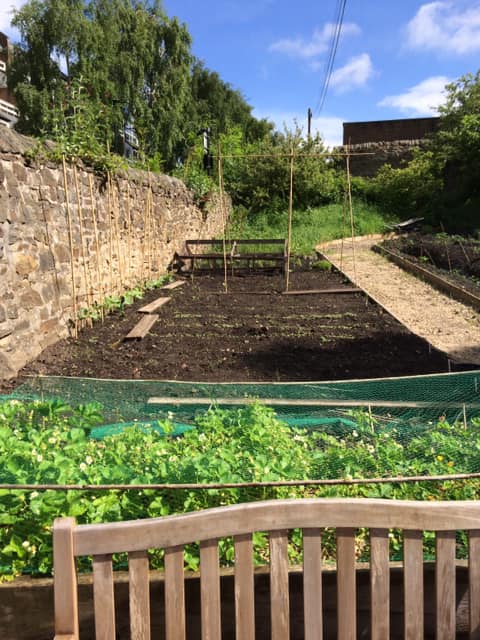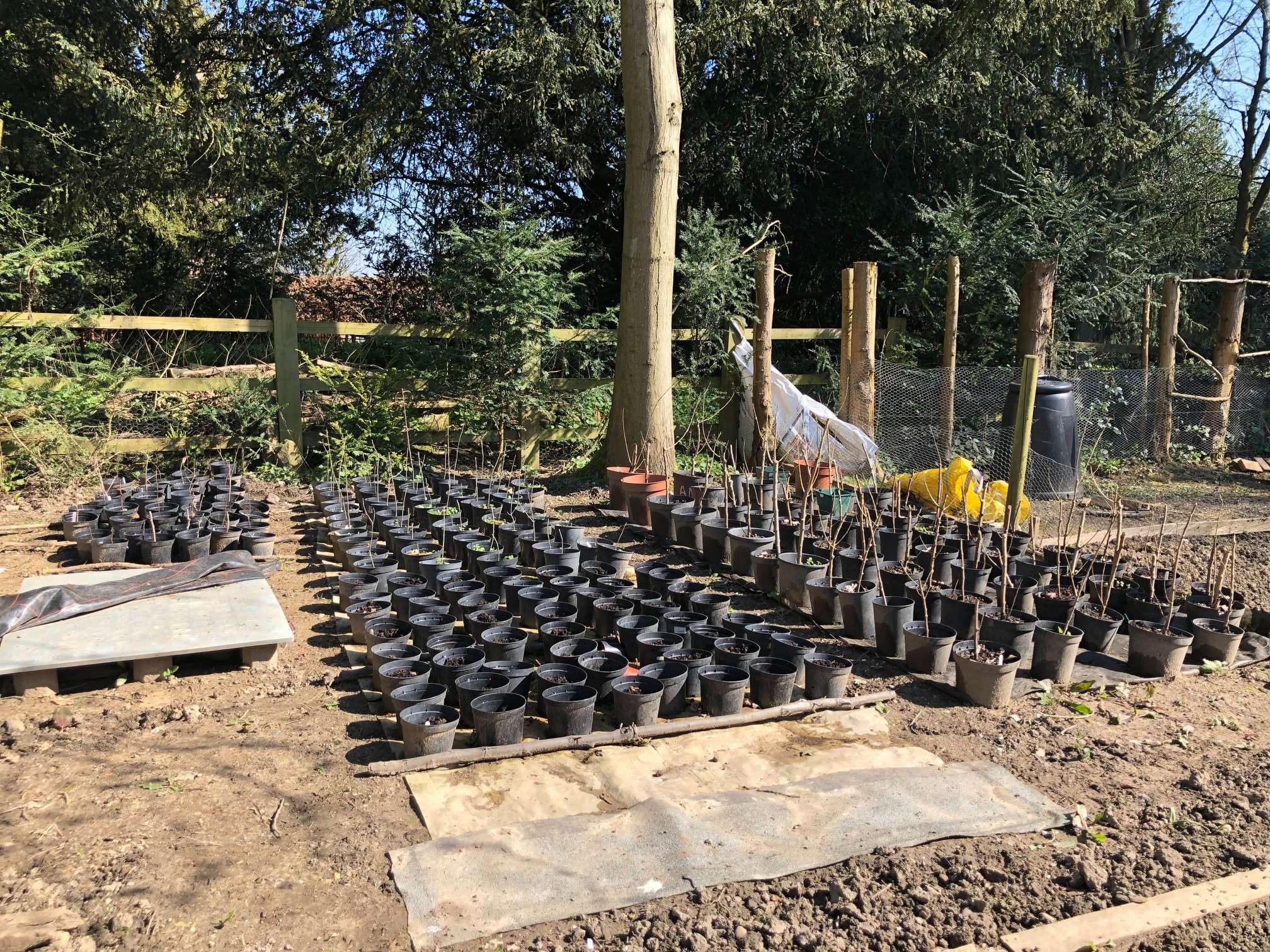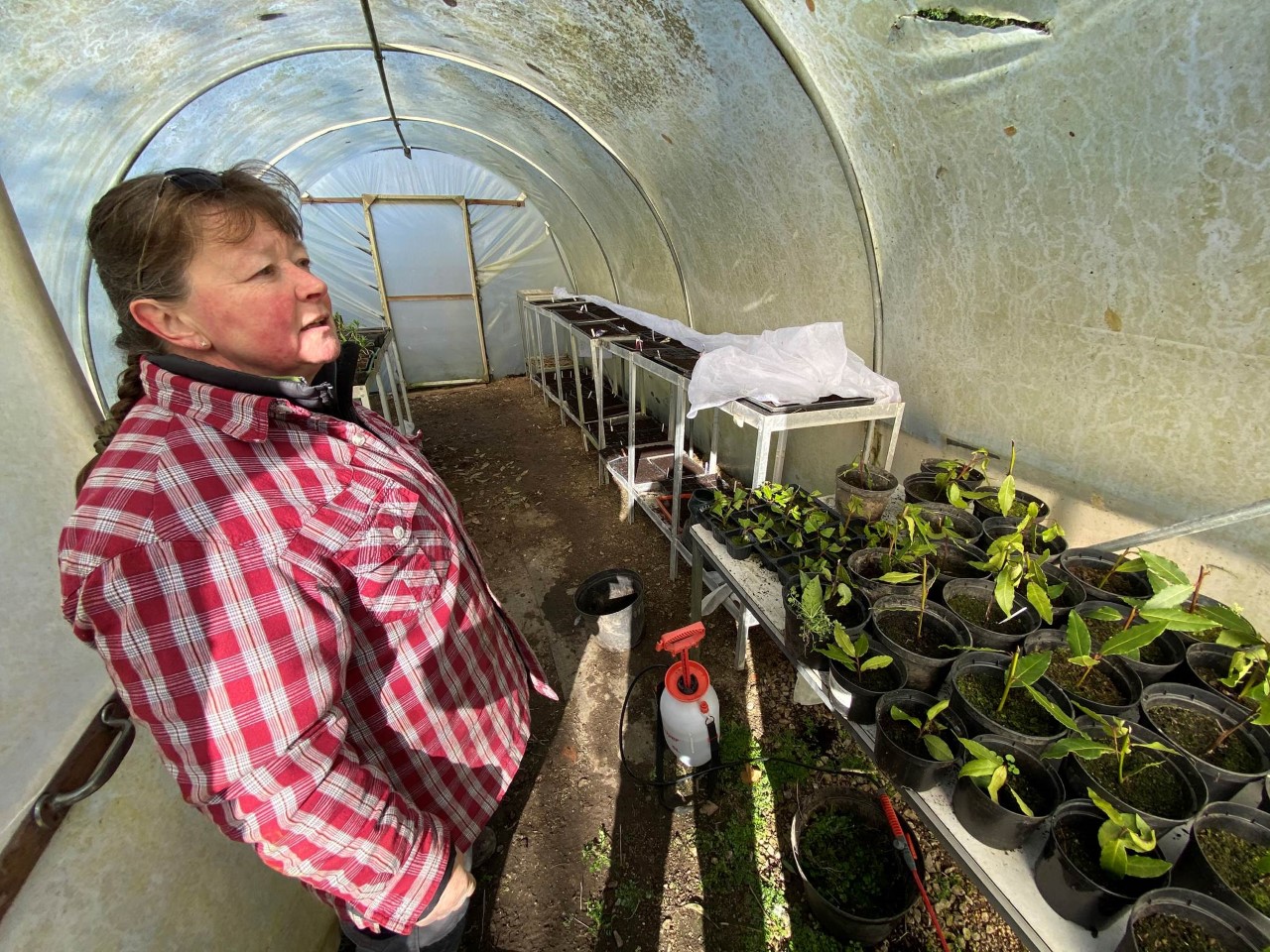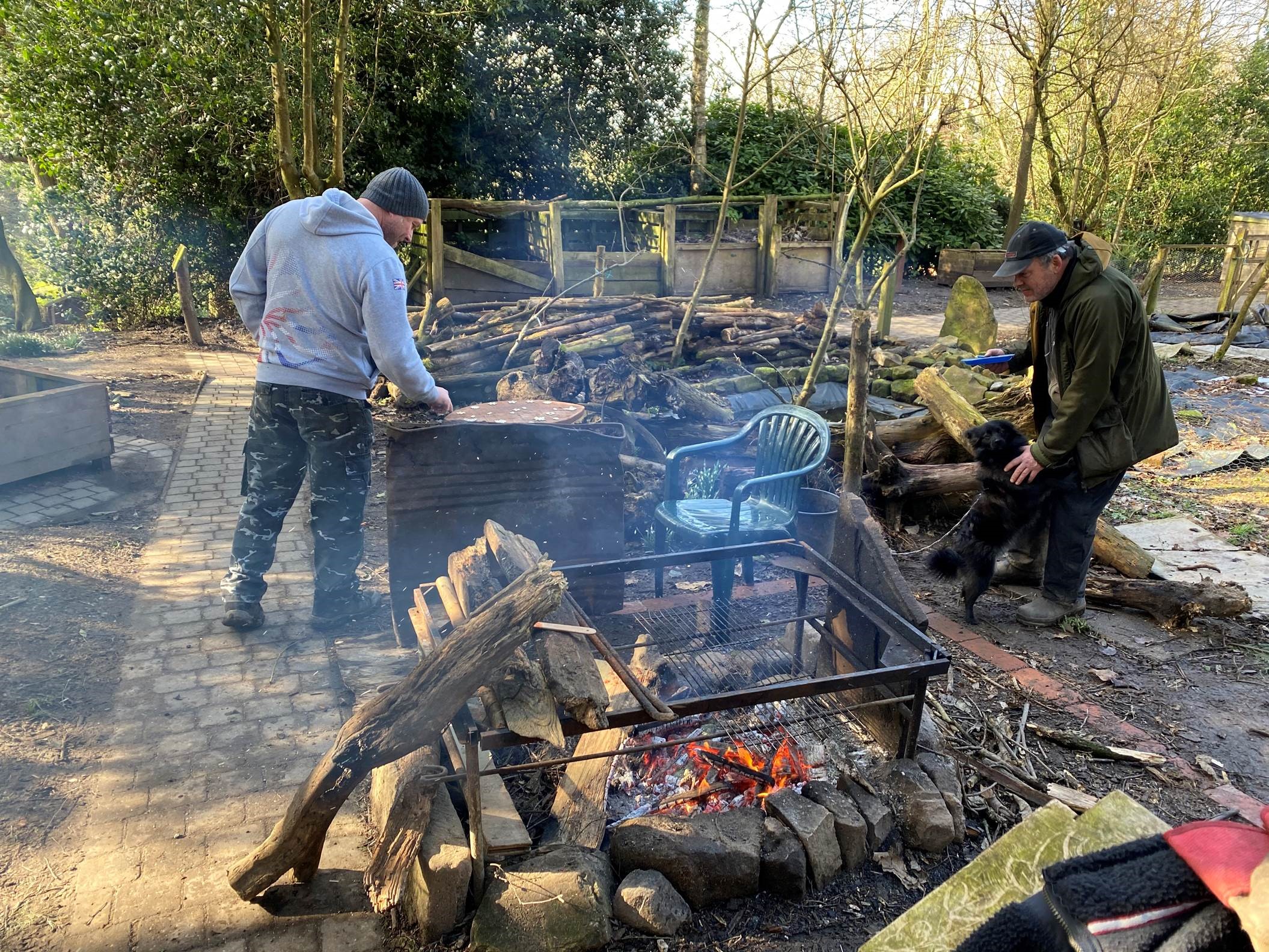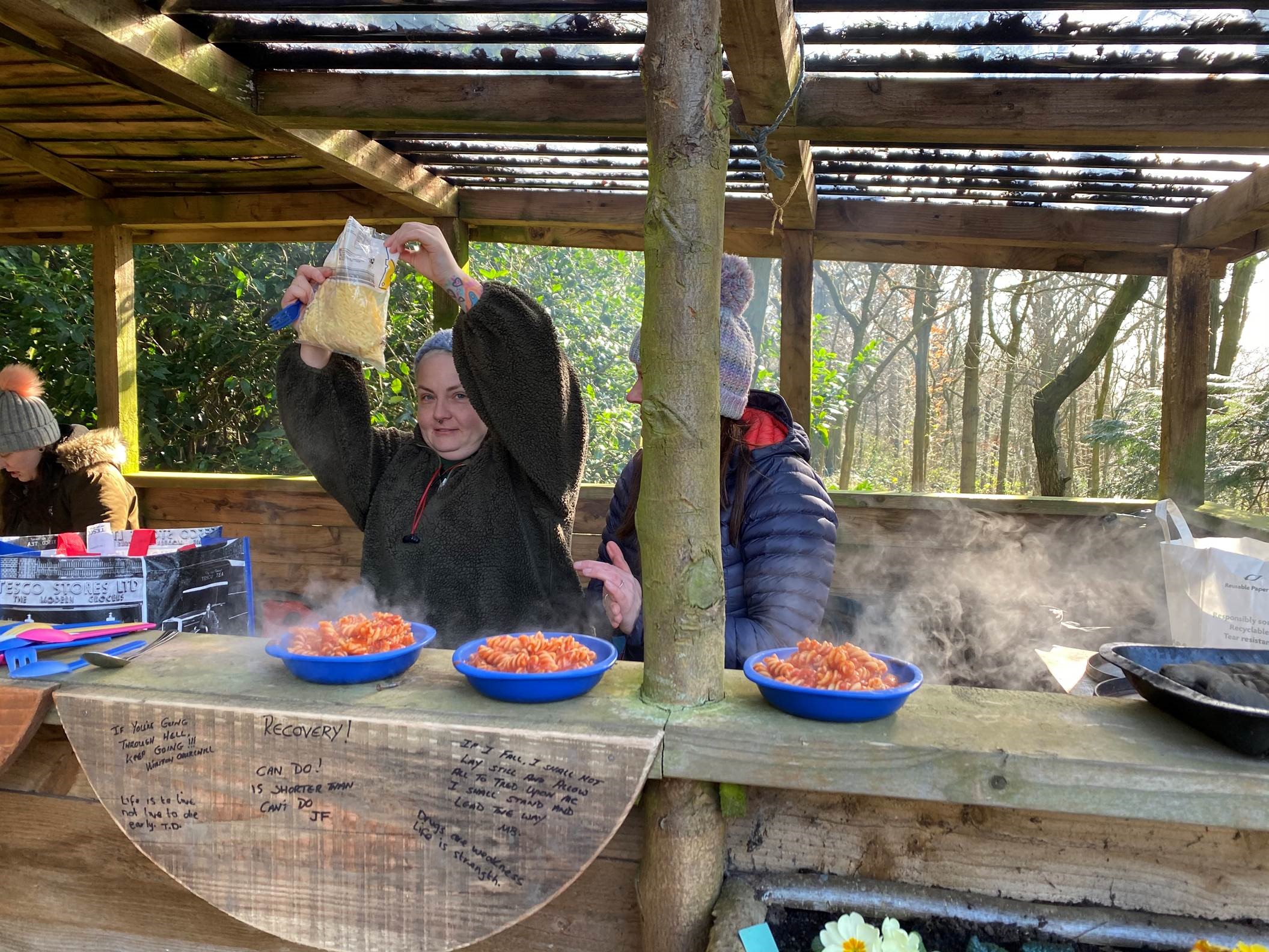Recovery through Nature’s strength lies in its capacity to enhance participants' belief in their ability to change, supporting their self-esteem, confidence and mental well-being through a combination of three 'catalysts for change':
- The Activity – As Peter from our Sheffield-based Residential Service described it, “…the manual work isn’t there just for the sake of it, it’s not like we have been put onto a plot of land and we are just putting up fences for the sake of it … we are conserving an area of land … There is a purpose…”
- The Environment – the power of being in and producing something with the natural environment is often under-valued. A recent evaluation of the programme stated, “RtN has taken eco-therapy to the next level; progressing from simply being outside and spiritually interacting with nature, to physically engaging with it. This innovative premise takes the recognised benefit from being amongst nature to looking at what can be done physically to develop, save or improve it.”
- The Communication – RtN encourages genuine bonding and team-working with peers in real life/work settings. Positive change is bought about by people listening and sharing their stories and experiences, and learning from and supporting one another.
The wellbeing of participants is enhanced through time engaged in a constructive activity that offers what our service users term as ‘head space’ - time to think and reflect, compounded by it being an enjoyable break from the intensity of their everyday therapeutic programme.

The John Muir Award:
Phoenix Futures work in partnership with The John Muir Trust who support our delivery of The John Muir Award which is an environmental accreditation scheme for all ages. It encourages people to connect with, enjoy, and care for wild places. For many of our service users this will be the first certificate thy may have received in any form, and it positively reinforces their recovery through recognising commitment.
RtN and Sustainable Recovery:
In 2018 we piloted a new and exciting initiative for RtN through Derbyshire, Essex and at our Sheffield Residential with the intention of offering the programme to a broader spectrum of people using our services. This new development is a fundamental part of Phoenix Futures’ Sustainable Recovery Strategy and is designed to be led by the people using our services, with the objective of reducing our organisational carbon footprint (with the ultimate objective being complete organisation carbon neutrality). There are three guiding principles:
- Growing our own produce that will be used by our service users (with the associated development of culinary skills and nutritional value) – ‘From seed to table’. There is a strong link between health and wellbeing in recovery being influenced by diet. Surplus produce is supplied to food-share and food-bank projects;
- Carbon reducing conservation work complimentary to surrounding and local habitats - for example, making areas bee and butterfly friendly and encouraging worm activity. We are developing eco-friendly composting and soil management, and are focusing on growing native species such as English Ivy and Moss that are excellent carbon reducing plants. We are expanding our Phoenix Futures’ Forest programme – through which service users have planted over 11,000 trees since its conception – through looking to plant carbon reducing trees such as London Plane and Horse Chestnut in urban settings. We are reducing our carbon footprint through less minibus use to transport service users to sites.
- Conservation work for our RtN partners – currently this includes growing oaks for The National Trust; Black Polar for Lee Valley Park; wildflowers for an ancient wetland meadow for The National Trust at Hare Hill in Cheshire; growing Alder for The John Muir Trust and making nesting boxes for various species from up-cycled materials.
Ownership by participants is fundamental to its success from a therapeutic perspective – they make the decisions for planning and design as well as taking responsibility for growing. As one of Phoenix Futures’ unique selling points, we are able to offer dimension to the services we offer through a programme that is unique and proven to work to a broad a spectrum as possible. We are delivering conservation work that compliments both the local environment and communities. The new development of RtN fits very comfortably into the Therapeutic Community ethos of ‘Right Living’.

Project Impact
"As a 12 year old I was taken into care. I felt lost and confused; I soon found cannabis. All seemed as good as it could be. At 14 I was dabbling with pills of various descriptions, soon leading to crime and eventually a prison sentence. I tried so many times to stop using drugs but failed, leaving me ashamed. I felt it was impossible for me to stop using drugs and I believed I needed drugs to be me. The drugs escalated to the point of serious intravenous use. My partner and young family would not see me for days on end. My mental health plummeted and my physical health was shocking. I even tried to take my own life.
I knew I had to try again. I went to Derbyshire Recovery Partnership (with Phoenix Futures). I felt at ease, and soon found myself on a minibus to the RtN at Shipley Park. I have learnt so much about myself. Today, drug free, I have reconnected with my family. My children look up to me. My friends are my fellow RtN volunteers. Put simply, I probably owe my life to RtN."
Mark, Derbyshire, June 19


